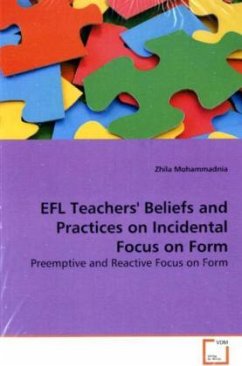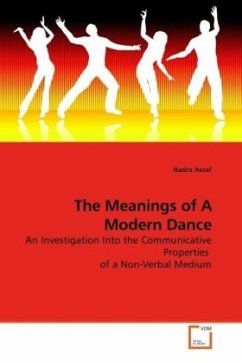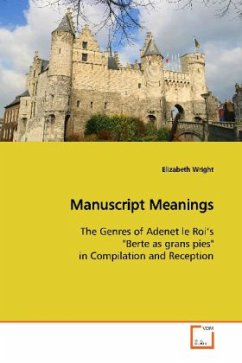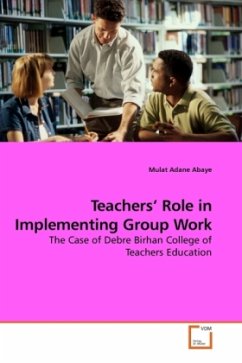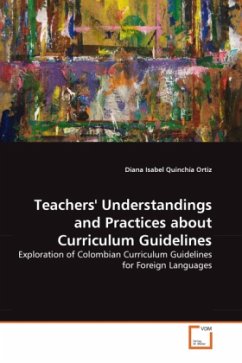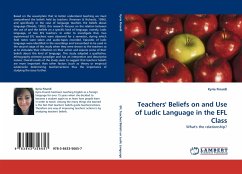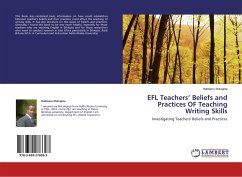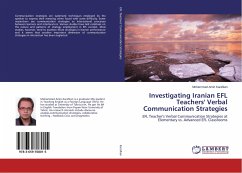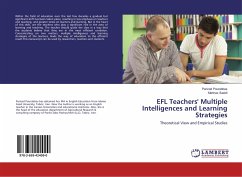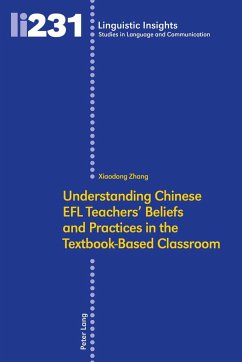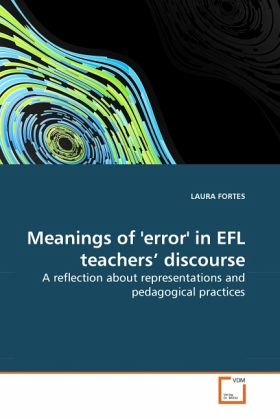
Meanings of 'error' in EFL teachers' discourse
A reflection about representations and pedagogical practices
Versandkostenfrei!
Versandfertig in 6-10 Tagen
39,99 €
inkl. MwSt.

PAYBACK Punkte
20 °P sammeln!
This work aims at analyzing meanings evoked by the signifier error' in EFL teachers' discourse in two institutional contexts: a public school and a language institute. From a discursive perspective, which contemplates the historical-ideological-social dimension in the study of meaning production processes, it tries to outline the interdiscourse that constitutes the memory space which sustains meanings of error'. For that we have conducted a literature survey on Applied Linguistics, focusing on the main theoretical models which approach the role of errors' within the scope of ELT theories. The ...
This work aims at analyzing meanings evoked by the signifier error' in EFL teachers' discourse in two institutional contexts: a public school and a language institute. From a discursive perspective, which contemplates the historical-ideological-social dimension in the study of meaning production processes, it tries to outline the interdiscourse that constitutes the memory space which sustains meanings of error'. For that we have conducted a literature survey on Applied Linguistics, focusing on the main theoretical models which approach the role of errors' within the scope of ELT theories. The study of this memory space led into understanding the interdiscourse in the process of knowledge constitution concerning the English language and ELT. This process legitimates specific pedagogical practices to which teachers and learners are submitted, and through which they constitute their subjectivities. We have concluded that the teacher holds a position of contradictions, in which learning through errors' is emphasized, whereas, at the same time, there is an attempt to minimize their occurrence and effects.



